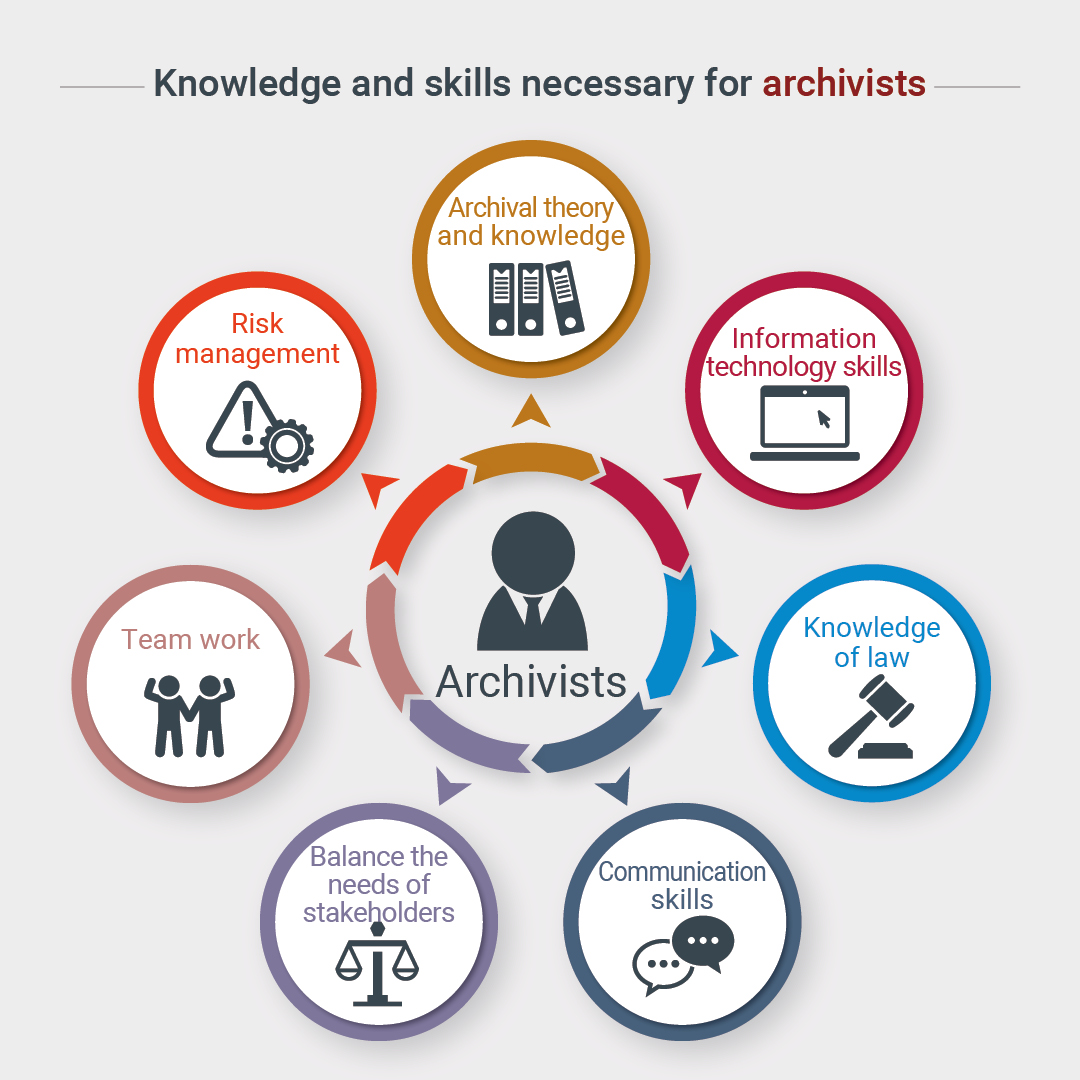Discovery
Archivists / Stories
“The Archivist grade is not a big workforce, with only 27 staff members, but it plays a crucial role in identifying and preserving valuable documentary heritage for the society.”
Archives are the treasures of our society. The archivists’ mission is to discover these treasures from myriads of records and to preserve them. Three of our grade members joining the service at different times, Archivist Miss Jessica Lau Sin-kwan, Senior Assistant Archivist Sammy Tsang Shun-fai, and Assistant Archivist Li Chun-wai, tell us the archivists’ untold stories.
Archivists in Public Impression
Although the three interviewed archivists joined the Government Records Service (GRS) at different times, they shared the same view that their friends and relatives misunderstood archivists’ image and work:
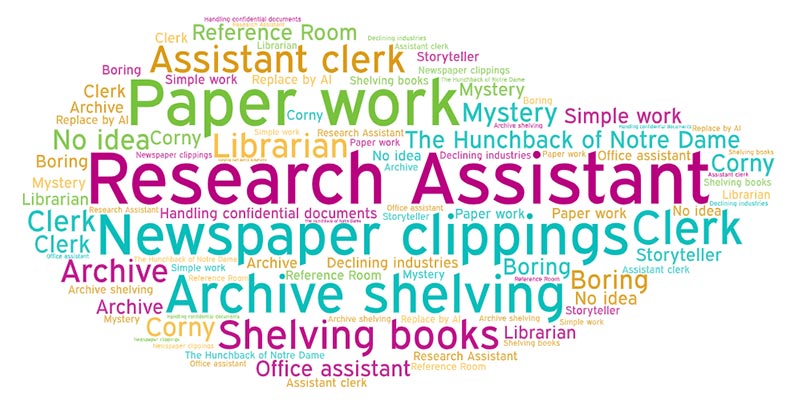
Archivists in Reality
Having worked at GRS for almost three decades, Miss Lau has been engaged in various aspects of archives management, including reference services and public programmes, records appraisal, records description and arrangement, access to records, research on archives law, library information management, and professional development and training. “We are neither historians digging into old papers nor clerical staff collecting newspaper clippings and filing records,” explained Miss Lau. “Traditionally, archivists are the ‘keeper’ of records. In recent years, we have also taken up the ‘facilitator’ role.”
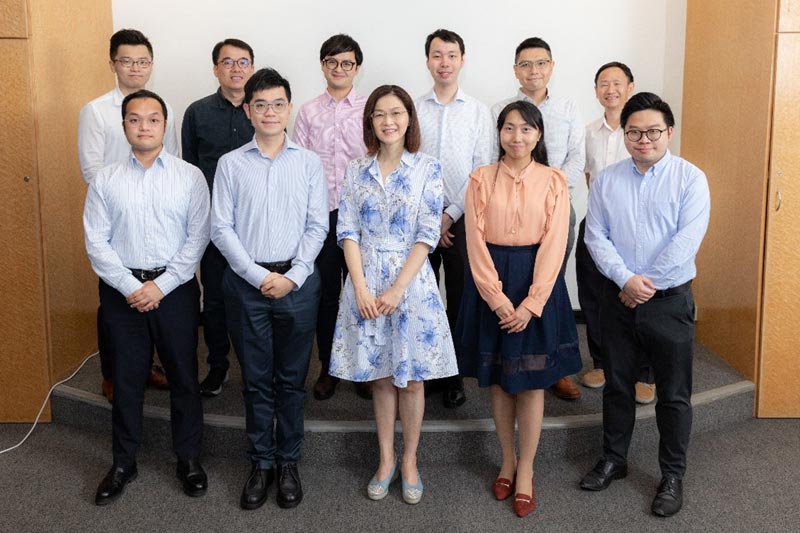
What does it mean? “Archivists are mainly responsible for appraising, describing and arranging records, and providing reference and public services with the aim of preserving archives and making them accessible to the public.” Miss Lau continued, “Think of it as brand-building. Some enterprises select products with great potential from all over the world to build their own brand. They also suggest ways the manufacturers can improve the product quality and help promote the products to consumers.” Likewise, archivists help bureaux/departments maintain good records management, work out the records retention and disposal schedules with them, and acquire records with archival value. “GRS makes everything happens: We provide reference services to help users look for the records they need; we also organise public programmes for the public to understand the importance of archives in preserving collective memory.” Miss Lau added, “To achieve these goals, we need to connect and work with both internal and external stakeholders.”
Mr Tsang and Mr Li, who have been in the job for about 10 years and 4 years respectively, work mostly on the internal front, such as appraising records, establishing records retention and disposal schedules, and handling applications for access to records. Even so, they see themselves more as “educators” than a back office staff for those outside GRS. “When we work with other bureaux/departments to develop their records retention and disposal schedules,” Mr Tsang explained, “their staff may not fully understand GRS’ functions, records management principles and practices. Some even have misunderstandings. So we need to clarify our role and responsibilities, and the practice and importance of records management. Our explanation usually would enable them to understand the interrelations between GRS’ work and their daily work.” This process is to link the two sides so that we can find and meet at the “junction”, added Mr Li. When two sides “synchronise” with each other, records management can be rolled out smoothly.
Discover / Treasures
Although archivists may find their role shifting, their mission to discover valuable documentary heritage for the society remains unchanged. Our three archivists have memorable experiences in treasure discovery to share.
Unearth the Hidden Treasures
“The value of archives lies in their contents. However, old, yellowed archival papers are not as attractive as paintings or ceramics in museums. Besides,” Miss Lau continued, “people generally see archives as dull and irrelevant to them. That’s why promoting archives requires commitment and quite some tactics. One day in the early years of my career, I found a box of government posters pending arrangement in the repository. They were produced by the Government between the 1950s and the 1980s to promote various policies, including public health campaigns featuring ‘Miss Ping On’ and ‘Litterbug’. Their themes are closely related to people’s everyday life, and their unique design and rich content have great historical significance and artistic value. So I decided to visit some cultural organisations and knock on their doors. Such efforts resulted in the ‘Improving Hong Kong: Government Posters from the Public Records Office’ exhibition co-organised with Hong Kong Arts Centre in 2000. Thanks to the help of one of our regular users, also a senior scholar, we found and interviewed the ‘Miss Ping On’ of 1961-62, Ms Wong Yuk-lan, in Shek Kip Mei Estate. She even attended the exhibition opening ceremony. This exhibition was a success in gaining popularity and showing how inclusive and diversified archives are.”
For Miss Lau, this is a valuable experience to show her a good archivist needs not only professional knowledge, but also the skills to connect our holdings with different stakeholders. It has become her motto since then.
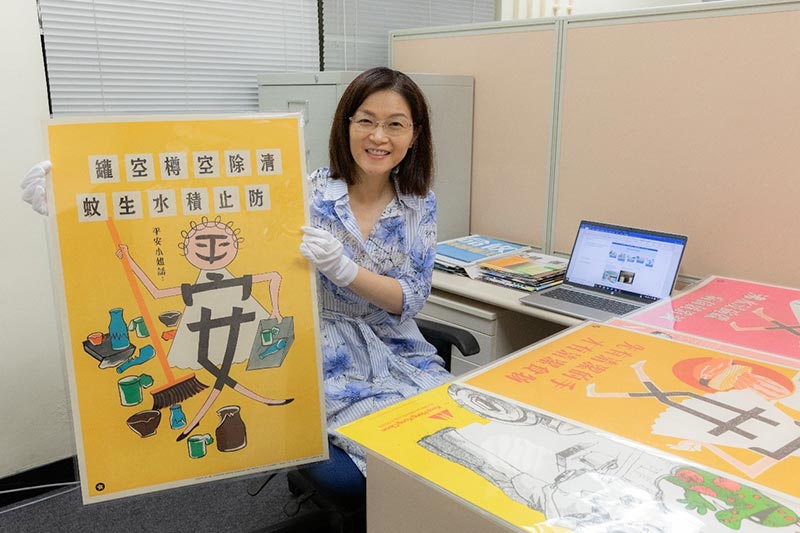
When the Unexpected Comes
One of the archivists’ duties is to select government records for permanent retention. Mr Tsang has come across records about stalls management, hawkers control, street naming, and so on. He found the Government’s work is more extensive and in-depth than generally assumed – it is closely related to every basics and necessities of everyday life. The development of these government policies and the cherished collective memory are documented in archives.
Sometimes, archivists visit bureaux/departments to appraise and acquire records with archival value. What impressed Mr Tsang was the enthusiasm of some experienced staff or even directorate officers in sharing the long-standing and unique records of the bureau/department. One of his most memorable experiences was the hand-drawn engineering drawings of some public works departments. Detailed explanations of the drawing process and historical value of these drawings from some about-to-retire staff not only help a great deal in records appraisal and arrangement. They also show the staff’s passion to their work and their wish to pass on the significant and unique records for the public to understand the department’s work and history.
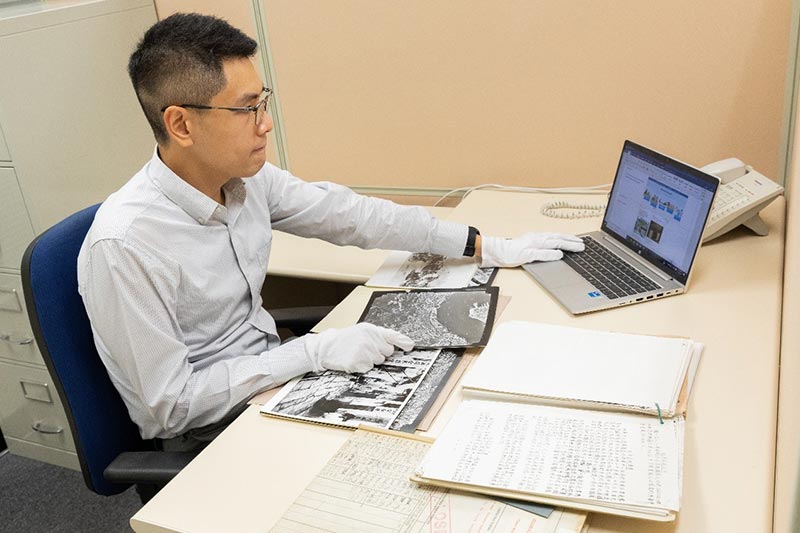
Look behind the Scenes
Mr Li, though relatively new in the grade, already has his say in archives management. In appraising records about telecommunications management, he realised that a TV advertisement as short as half a minute already involved a load of production, inspection and consultation work. The Government and different stakeholders reviewed and adjusted the advertisement design for rounds to ensure compliance with relevant codes of practices before the advertisement could be aired. Some of these advertisements have become a household name and collective memory of Hong Kong people. “Archives management is far from a boring job as generally assumed. Discovering interesting records at work is a valuable and rewarding experience,” said Mr Li.
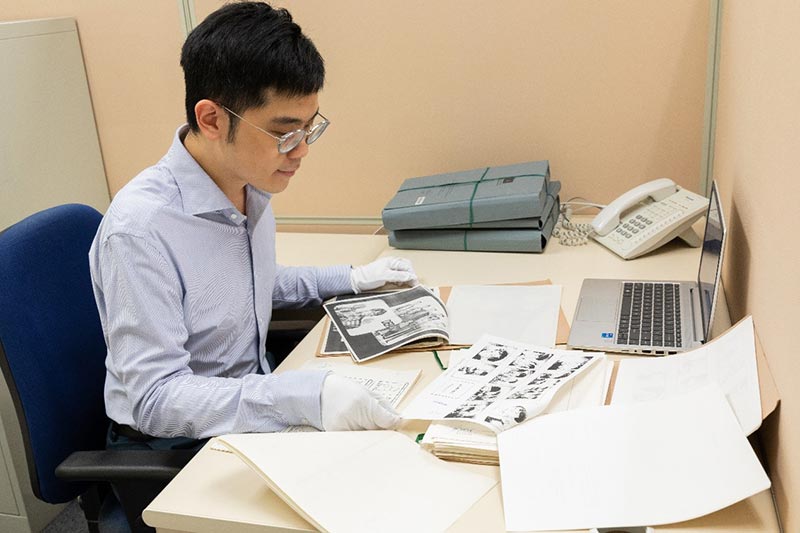
Responsibilities: the Changed and the Unchanged
All three archivists agreed that archives management practices change with the times, especially when electronic records bring challenges and opportunities. Even so, the fundamental conviction of recordkeeping remains unchanged. On the impact of electronic records, Miss Lau saw electronic records management as a cross-disciplinary subject which is born of records management and information technology. “Archivists need to bridge these two fields – enriching our knowledge in archives management and learning the language of information technology. By taking a step forward, we can communicate better with IT professionals and explain to them the principles, standards and requirements of recordkeeping more effectively. Enhancing cross-disciplinary collaboration is the way for electronic records management. That’s why in planning and organising training programmes and professional exchanges, equal weight needs to be given to professional knowledge of archives management, risk management, information technology and artificial intelligence to adapt to the era of electronic records management.”
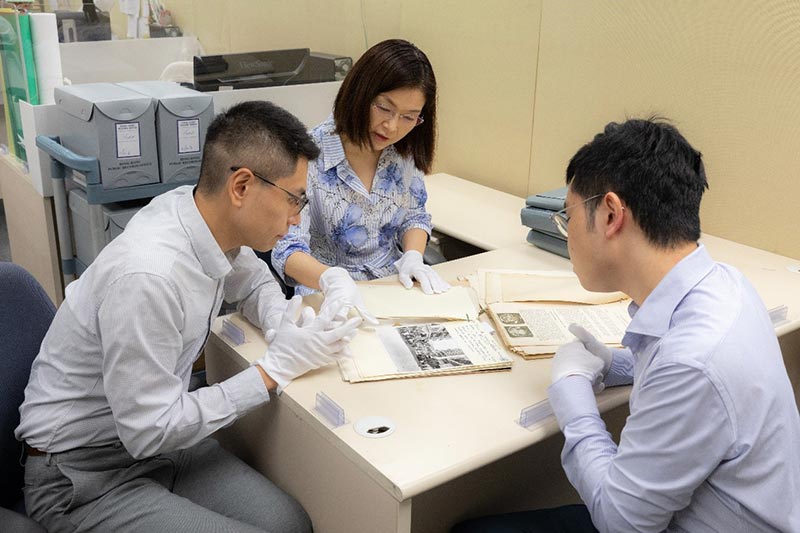
Mr Li recalled his visit to the Guangzhou National Archives with officers from other grades not long after he joined GRS. He found the integration of high-tech with archives management an eye-opener and shared it with his fellows at a sharing session afterwards.
Archivists also seize the opportunity of online learning for their professional development. Mr Tsang revealed short-term courses on archives management often have limited places, but going online enables more colleagues to take courses on topics such as digital archives arrangement and metadata management together. Colleagues can even cross beyond geographical boundary to attend international webinars organised by the International Council on Archives so as to understand better the archivists’ role in planning automated electronic records management and designing artificial intelligence system.
